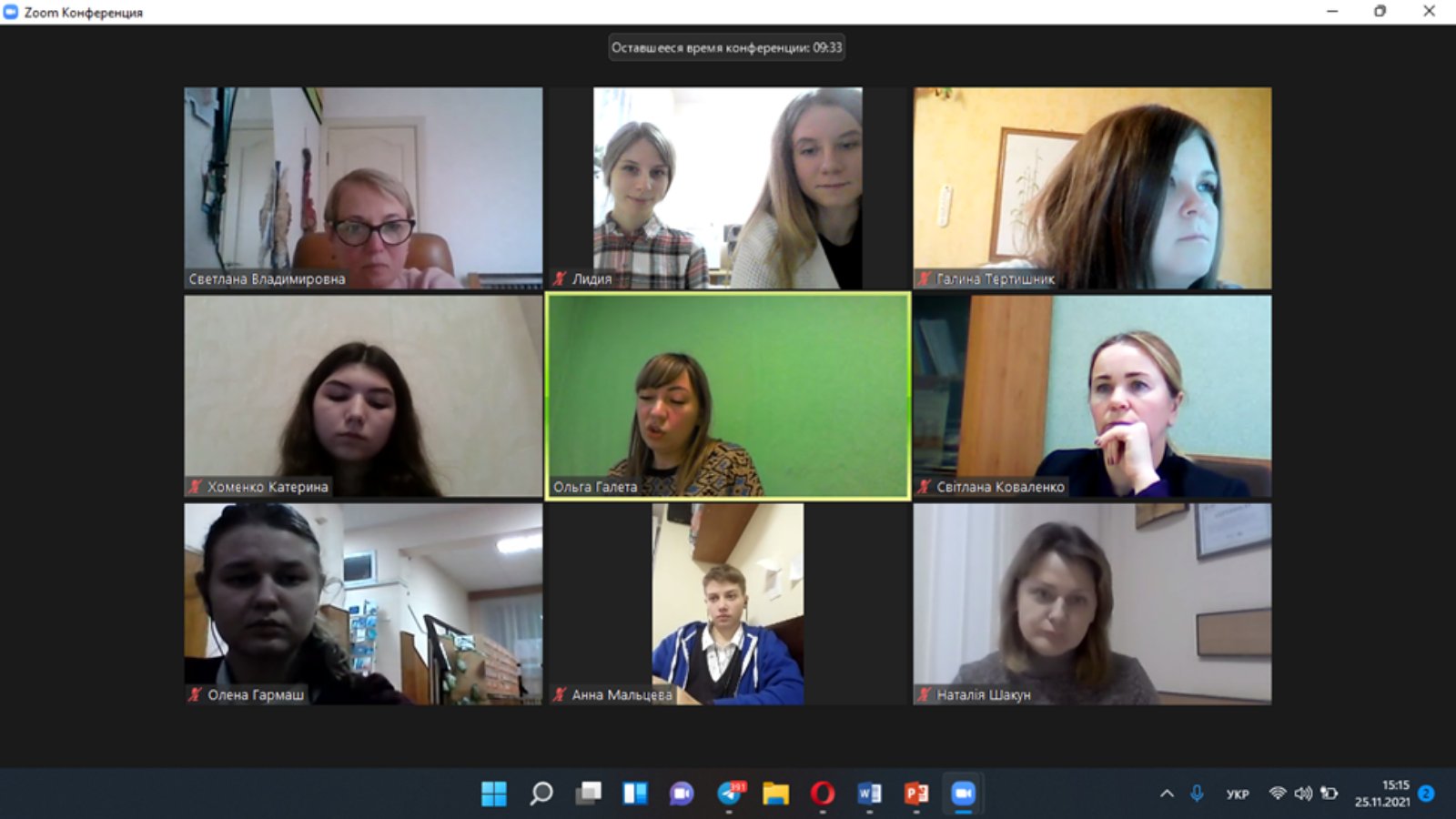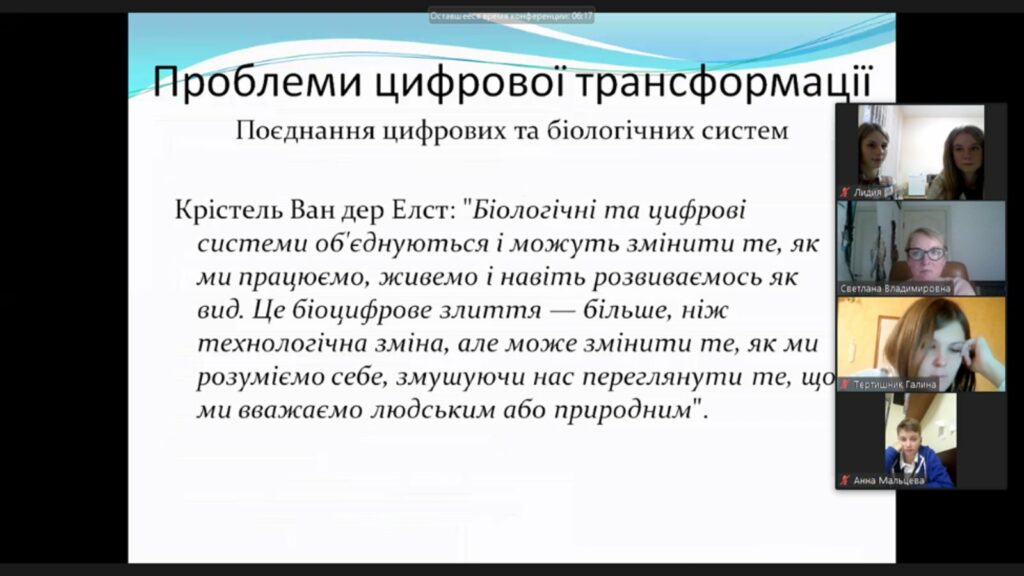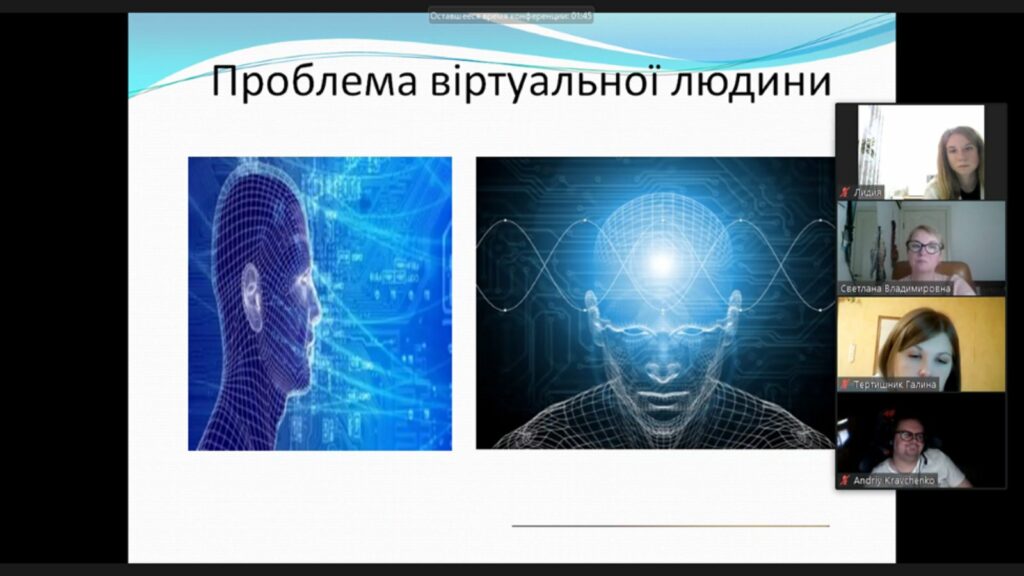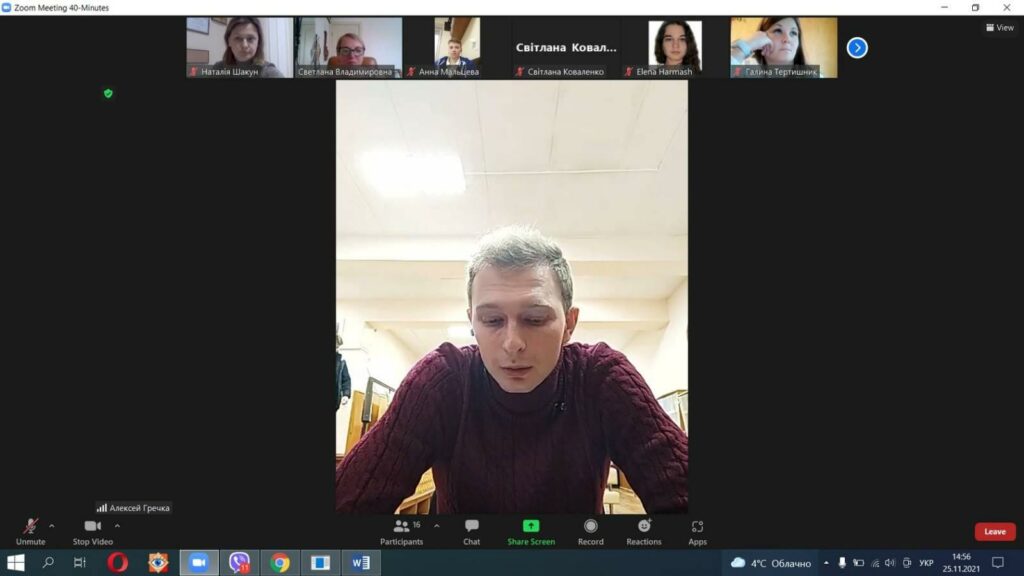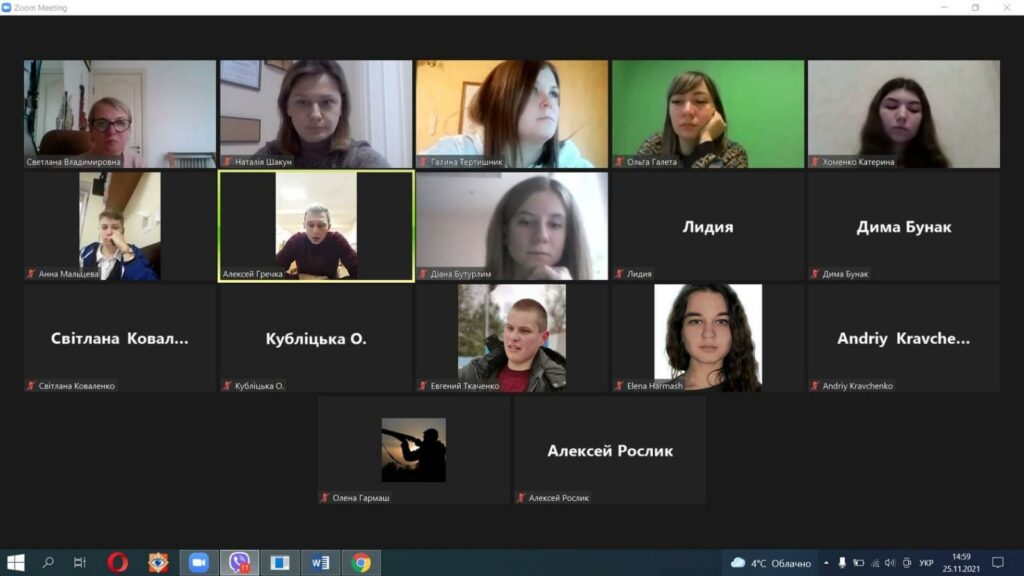An interdisciplinary scientific-practical seminar “CULTURE. CIVILIZATION. SCIENCE”
On November 25, an interdisciplinary scientific-practical seminar “CULTURE. CIVILIZATION. SCIENCE “, organized by the Department of Philosophy and Social Sciences of the Institute of Economics of Chernihiv Polytechnic National University with a dedication to the World Philosophy Day (moderator – Candidate of Philosophy, Assoc. Prof. Svitlana Kiselytsia).
The head of this department, Candidate of Philosophy, addressed the participants of the seminar – mostly candidates of the second and third levels of higher education. n., docent Natalia Shakun, who stressed the importance of the interdisciplinary status of this educational and scientific event and the need to actively involve creative youth in solving current problems. None of the positions of the previously announced issues went unnoticed. And its range is really wide: Culture and civilization: the contradiction between them and ways to solve it. Historical types and criteria for defining civilizations in modern philosophy of history. Culture as the objectification of the limit of human existence and going beyond it. The problem of the ratio of national and universal in culture. Ukrainian culture and its archetypes. The contradiction between globalism and pluralism in the modern cultural and anthropological space. Multiverse: harmony or chaos? Man and energy systems. Digitalization: philosophical and psychological aspects of information activity. Ecological consciousness. The problem of social prediction and forecasting the future. Constructive thinking: a methodology of scientific research.
Substantive reports of graduate students, undergraduates, bachelors (set out in the program) clearly confirmed the expectations of the organizers outlined for the purpose of the meeting: the development of scientific and creative potential of higher education, discussion of current civilizational problems, establishing communicative culture, knowledge. Therefore, we can thank our younger colleagues, the unconditional intellectual elite of the university, for interesting reports, and express confidence in further fruitful cooperation, based on the constructive interest of philosophy in specific sciences and vice versa through complementary methodological and empirical components.
